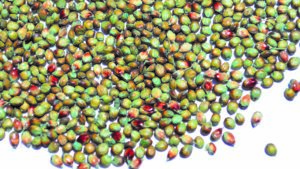Since 2013, U.S. row crop farmers have experienced big yields and low commodity prices. This has put significant profit pressure on those in the Corn Belt. This pressure is also being felt by seed companies selling to these farmers. How can companies break out of this complex? Here are two ways your company can extend its current infrastructure and expertise to pursue better margin opportunities and get a leg up on the competition.
Sell Something New
Resistance to change is the biggest barrier to doing something new. Despite the challenging market conditions, most seed companies are doing OK. If that’s good enough, then the status quo works. But if you believe it can be better, you’ll need to push your team and company beyond their comfort zone. In almost every corner of the country, farmers are experimenting with some type of niche market: organic, food grade, alternative crops, plant-based proteins, etc. Many of these may be competitive to what your company sells, and the natural tendency is to resist supporting an opportunity that could cannibalize existing sales. But what if you embraced it? Your company could combine its local knowledge of farming practices, weather and soil to partner with farmers in their new ventures. Non-ag companies are aggressively investing in these markets and I believe seed companies can be value-added partners.
Explore Public Partnerships
Universities and technical colleges are incubating new ag and food companies than ever before. These academic institutions provide a wealth of skilled students and overhead support for startups, but they often lack the ability to execute and expand beyond the testing phase. You can gain insight into what new opportunities may be coming next and position your company to benefit by creating relationships with public researchers.
Further, if you have an idea that could give farmers an additional source of revenue or cost savings, reach out to these institutions. You might be able to tap into public funding, genetics or scientific expertise to support exploration of your concept.
Success in niche markets requires you to widen your scope of possible partners and brainstorm new ideas. Preparing for and pursuing new opportunities can diversify your business and set it up for long-term success. Selling seed to commodity farmers may always be your largest source of revenue and profit, but dedicating time to pursue new markets ensures you’ll have opportunities beyond the commodity corn and soybean complex.









